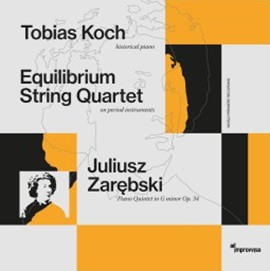Gabriela Lena Frank (*1972) komponierte ihr Conquest Requiem im Jahre 2017. Es war das letzte Werk, das Frank als Composer-in-Residence des Houston Symphony Orchestra schrieb. Es befasst sich mit den historischen Auswirkungen der spanischen Eroberung Mexikos und konzentriert sich auf die Perspektive der Nahua-Frau Malinche, der Dolmetscherin und Geliebten des Konquistadors Hernán Cortés, und ihres gemeinsamen Sohnes Martín, einem der ersten Mestizen.
Das Libretto besteht aus drei Sprachen, dem traditioneller lateinischen Requiem-Text, der vom Chor gesungen wird, Nahuatl-Texten, verfasst von aztekischen Fürsten, sowie einem spanischen Text des Dramatikers Nilo Cruz.
Die Musik ist teils lyrisch, aber sehr oft rhythmisch, mit einer Vielfalt reicher und farbiger Texturen und, aufs Ganze gesehen, sehr effektvoll.
Solistin Jessica Rivera, singt die Malinche sehr gefühlsvoll mit ihrer strahlenden Sopranstimme, und Andrew Garland singt den Baritonpart ebenfalls sehr gut.
Giancarlo Guerrero leitet Chor und Orchester in einer energiegeladenen und spannenden Aufführung.
Antonio Estévez Cantata Criolla für Tenor, Bariton, gemischten Chor und Orchester stammt aus dem Jahre 1954 und ist ein oft aufgeführtes Werk, das auf dem Gedicht Florentino y el Diablo von Alberto Arvelo Torrealba basiert, einer Allegorie über den Triumph des Guten über das Böse in der Person von Florentino, einem Cowboy-Troubadour aus der venezolanischen Ebene. Der Teufel taucht aus heiterem Himmel auf, wobei das Orchester zu seiner Identifizierung das Dies irae erklingen lässt, und fordert ihn heraus. Florentino nimmt die Herausforderung an und der Kampf wird mit Worten ausgetragen.
Es ist ein Wettstreit, in dem jeder Kontrahent die letzte Zeile des Verses seines Gegners als Anfangszeile seines eigenen Verses übernimmt. Am Ende beansprucht jeder den Sieg für sich, aber der Teufel unterliegt schließlich, weil Florentino heilige Verse rezitiert, die dann vom Chor übernommen werden.
Die zwei Solisten führen den Redekampf sehr idiomatisch und ausdrucksvoll aus, und Guerrero spornt das Orchester zu einer Höchstleistung an. Der Chor sorgt ebenfalls für eine großartige Darbietung.
Die Tonaufnahme ist präsent, kräftig und räumlich gut disponiert.
Gabriela Lena Frank (born 1972) composed her Conquest Requiem in 2017. It was the last work Frank wrote as composer-in-residence with the Houston Symphony Orchestra. It deals with the historical impact of the Spanish conquest of Mexico and focuses on the perspective of the Nahua woman Malinche, interpreter and lover of the conquistador Hernán Cortés, and their son Martín, one of the first mestizos.
The libretto consists of three languages: the traditional Latin requiem text sung by the choir, Nahuatl texts written by Aztec princes, and a Spanish text by playwright Nilo Cruz.
The music is partly lyrical, but very often rhythmic, with a variety of rich and colorful textures and, overall, very effective.
Soloist Jessica Rivera sings Malinche very soulfully with her radiant soprano voice, and Andrew Garland also sings the baritone part very well.
Giancarlo Guerrero conducts the choir and orchestra in an energetic and exciting performance.
Antonio Estévez’s Cantata Criolla for tenor, baritone, mixed choir, and orchestra dates from 1954 and is a frequently performed work based on the poem Florentino y el Diablo by Alberto Arvelo Torrealba, an allegory about the triumph of good over evil in the person of Florentino, a cowboy troubadour from the Venezuelan plains. The devil appears out of the blue, with the orchestra playing the Dies irae to identify him, and challenges him. Florentino accepts the challenge and the battle is fought with words.
It is a contest in which each opponent takes the last line of his opponent’s verse as the opening line of his own verse. In the end, each claims victory, but the devil ultimately succumbs because Florentino recites sacred verses, which are then taken up by the choir.
The two soloists perform the verbal battle very idiomatically and expressively, and Guerrero spurs the orchestra on to a peak performance. The choir also gives a magnificent performance.
The sound recording is present, powerful, and spatially well captured.























